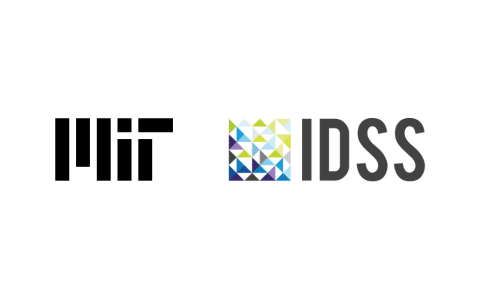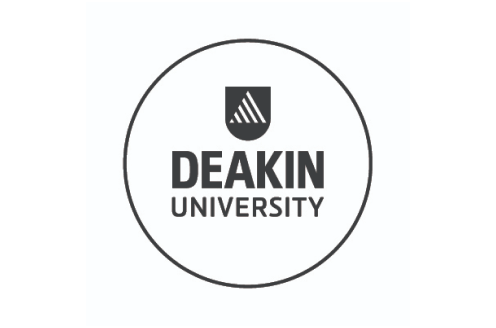Data Science Interview Questions and Answers
Learn to excel in data science interviews with our free course on Data Science Interview Questions and Answers. Covering statistics, regression, and Naïve Bayes theorem. Boost your knowledge in data science with this free course.

Ratings
Level
Learning hours

Learners
Skills you’ll Learn
About this course
Data Science is among the leading and most popular technologies in the world today. Major organizations are hiring professionals in this field. With the high demand and low availability of these professionals, Data Scientists are among the highest-paid IT professionals. If you're moving down the path to becoming a data scientist, this course will help you to be prepared to impress prospective employers with your knowledge. In addition to explaining why data science is so important, you'll need to show that you're technically proficient with Big Data concepts, frameworks, and applications. In this course, we have included some of the most popular data science interview questions you can expect to face in your interview.
Course Outline
In this section, you will learn about the statistical concepts of data science which include probability, regression, and statistical inference. You will get a document summary of these concepts in this module.
The next module will cover forward, and stepwise regressions as well as the types of simple and multiple regression. Later on, the tutor will cover some interview questions and answers on the topic RMSE, R squared in statistics, machine learning, applications of linear regression, and other variety of topics that revolve around linear regression. There will be 20 important interview questions covered in this module.
This section explains logistic regression, its advantages and disadvantages, concordance, and difference between logit and logistic regression. Later you will understand the term error, collinearity, predictive modelling, and the importance of logistic regression. You will also understand to evaluate a logistic regression model.
Know about Support Vector Machines and their real-life applications in this module. The tutor also covers the questions that ask for the advantages, disadvantages, and comparison of SVM with other vector machines. Later, you will understand multi-class SVM methods, learning algorithms, SVR Rank, and linear classifiers of SVM.
This module covers the most common interview questions on the Naïve Bayes algorithm such as its definition, the meaning of naïve in Naïve Bayes, its advantages, and comparison with other theorems. You will also understand its real-world applications, decision trees, and its relation with logistic regression.
 UPGRADE
UPGRADE
Recommended university programs
Frequently Asked Questions
Will I receive a certificate upon completing this free course?
Is this course free?
What are the prerequisites to learning this Data Science Interview Questions and Answers course?
The course is designed in such a way that anyone can learn and understand the concepts taught in this course. However, the ideal learners of this course are the one who already has knowledge of Data Science and looking for jobs and preparing content for the interviews. So, it will be a plus point if you have a good knowledge of data science to start this course.
What are my next learning options after this course?
After you complete this course, you will get familiarized with the sure-shot questions and answers that are asked in a Data Science interview. So what you can do after this course starts applying for jobs in this field and giving interviews. The more you learn from practical interviews will increase your chances of being hired as a Data Scientist role. Otherwise, if you still need more information and learn content from Python, then you can refer to PG courses provided by Great Learning that can help you advance your skills.
How long does it take to complete this free Data Science Interview Questions and Answers course?
The course contains video content whose total duration is around 1.5 hours. So, the content of this course is self-learning videos that you can finish at your own comfort.
Introduction to Data Science
Data science is a field that combines various disciplines to extract knowledge and insights from both structured and unstructured data using scientific methods, processes, algorithms, and systems. It encompasses a range of tasks such as data cleaning, analysis, and visualization, and can be applied in various industries such as finance, healthcare, and e-commerce. It involves using techniques from statistics, machine learning, and computer science to analyze and interpret complex data sets. The goal of data science is to extract actionable insights and make data-driven decisions to improve business outcomes and drive innovation.
Advantages of Data Science:
- Improved decision-making: Data science can help organizations make more informed decisions by providing insights into patterns and trends in data.
- Increased efficiency: By automating repetitive tasks and identifying areas for improvement, data science can help organizations increase efficiency and productivity.
- Better customer understanding: Data science can be used to analyze customer data to gain a deeper understanding of customer behaviour, preferences, and needs.
- New product development: Data science can be used to identify new opportunities for product or service development.
Disadvantages of Data Science include:
- High costs: Implementing data science projects can be costly due to the need for specialized software, hardware, and personnel.
- Complexity: Data science projects can be complex and require significant expertise to design and execute effectively.
- Data quality: The quality of insights generated by data science is only as good as the quality of the data. Poor data quality can result in inaccurate or misleading insights of the data.
- Ethical concerns: There may be ethical concerns related to the collection, storage, and use of data.
Additionally, the lack of diversity in the field and the lack of understanding of the technology by some decision-makers can be a disadvantage.
Career options in Data Science:
A career in data science can be a fulfilling and lucrative choice, as the demand for data scientists continues to grow. Some responsibilities of Data Scientist include the following:
- Collecting, cleaning and analyzing large sets of data
- Building statistical models and machine learning algorithms
- Communicating findings and insights to stakeholders
- Developing and implementing data-driven solutions to improve business outcomes
- Continuously monitoring performance and trends, and updating models as necessary
Data scientists can work in a variety of industries, such as finance, healthcare, retail, and technology. They may work for large companies, small start-ups, consulting firms, or government agencies.
To become a data scientist, one typically needs a strong background in mathematics and computer science, as well as experience working with data. A master's degree or PhD in a related field such as statistics, computer science, or engineering is often required, though not always. Many data scientists also have experience in software development and experience with data visualization tools.
The median salary for data scientists is around $100,000 per year, with the potential to earn much more with experience and the right qualifications.
How Data Science Interviews are conducted?
Data science interviews are usually conducted to assess the technical knowledge, problem-solving skills, and communication abilities of a candidate. The process can vary depending on the company and the role, but typically includes a combination of technical assessments and behavioural interviews.
Technical assessments may include:
- Coding challenges: Candidates may be asked to complete a coding challenge or to write code on a whiteboard or online platform.
- Data analysis: Candidates may be asked to analyze a given dataset and answer questions related to it.
- Machine learning: Candidates may be asked to explain the workings of a machine learning algorithm or to implement one from scratch.
Behavioural interviews may include:
- Past projects: Candidates may be asked to describe a data science project they have worked on in the past and the results they achieved.
- Problem-solving: Candidates may be asked to describe how they approach a problem and what steps they would take to solve it.
- Communication: Candidates may be asked to explain a technical concept to a non-technical person or to present their findings to a group.
It's important for the candidate to be well-prepared, to be able to communicate clearly and efficiently and to be ready to answer questions related to statistics, machine learning, programming, and big data technologies. Additionally, candidates should be able to show evidence of experience working with real-world data sets and knowledge of current industry trends and best practices.
Opportunities in Data Science:
There are many opportunities in data science, as the field is growing rapidly, and organizations across a wide range of industries are seeking to gain insights from their data to make better decisions and drive innovation. Some of the key areas where data science can be applied include:
- Business Intelligence: Extracting insights from data to inform decision-making and measure performance in areas such as finance, marketing, and operations.
- Predictive Analytics: Using data to make predictions about future events or trends.
- Machine Learning: Developing and deploying algorithms that can learn from data and make predictions or decisions without being explicitly programmed.
- Natural Language Processing: Analyzing and understanding human language to extract insights from unstructured text data.
- Computer Vision: Analyzing and understanding visual data, such as images and videos.
- Healthcare: Applying data science to improve patient outcomes and reduce costs in areas such as drug discovery, medical imaging, and public health.
- Recommender systems: Developing systems that can make personalized recommendations to users, such as in e-commerce and media streaming.
Data science can be applied in many industries such as finance, healthcare, retail, manufacturing, and transportation. Data scientists can work in a variety of roles, including data analyst, data engineer, data architect, machine learning engineer, and research scientist.
The field is constantly evolving and new opportunities are arising, such as in the Internet of Things (IoT) and self-driving cars, where data science plays a crucial role.
By enrolling on this course, you will get a clear idea of how to present answers to interview questions. You will get to know the important concepts of Data Science that include statistics, regression, SVM, important theorems, and decision trees.



































